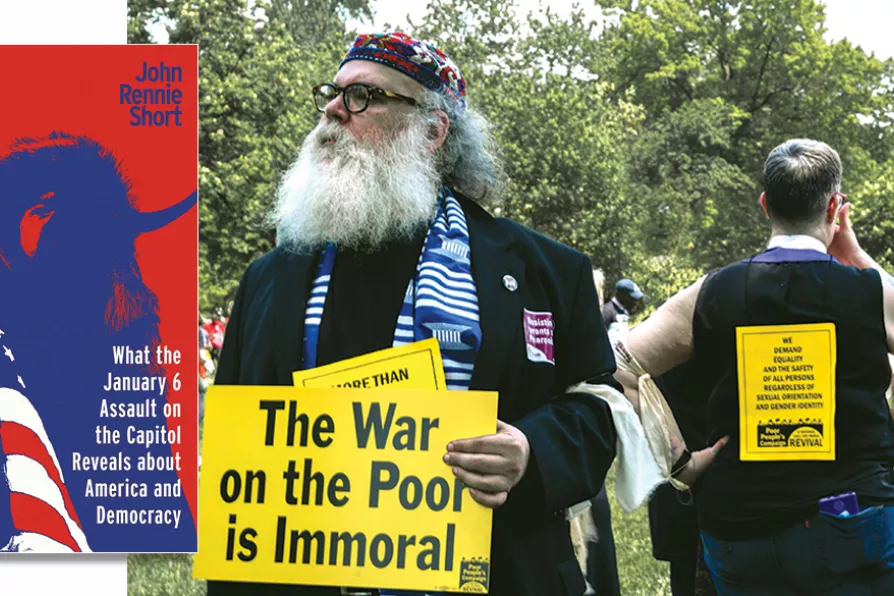JULIA THOMAS unpicks the mental processes that explain why book-to-film adaptations so often disappoint

 THIS SIDE OF THE LAW FOR NOW: Poor People's Campaign: a call for moral revival at US Capitol, Washington DC, May 2018
[Leeann Cafferata/flickr/CC]
THIS SIDE OF THE LAW FOR NOW: Poor People's Campaign: a call for moral revival at US Capitol, Washington DC, May 2018
[Leeann Cafferata/flickr/CC]
Insurrection: What the January 6 Assault on the Capitol Reveals about America and Democracy
by John Rennie Short
Reaktion Books, £12.95
YOU could almost feel the suction from across the Atlantic as US liberals inhaled collectively on hearing that Colorado’s highest court had found “clear and convincing evidence that President Trump engaged in insurrection.”
What better confirmation that the mendacious plutocratic populist was a tyrant bent on a coup to sweep away the sickly vestiges of the US’s ailing democracy when he encouraged his motley army of extremists to storm the Capitol on January 6 2021? And what better outcome than a ruling by senior judges — followed in short order by Maine — that will greatly complicate his ambitions to storm the White House yet again in the 2024 presidential election in November?

FRANCISCO DOMINGUEZ says the US’s bullying conduct in what it considers its backyard is a bid to reassert imperial primacy over a rising China — but it faces huge resistance













